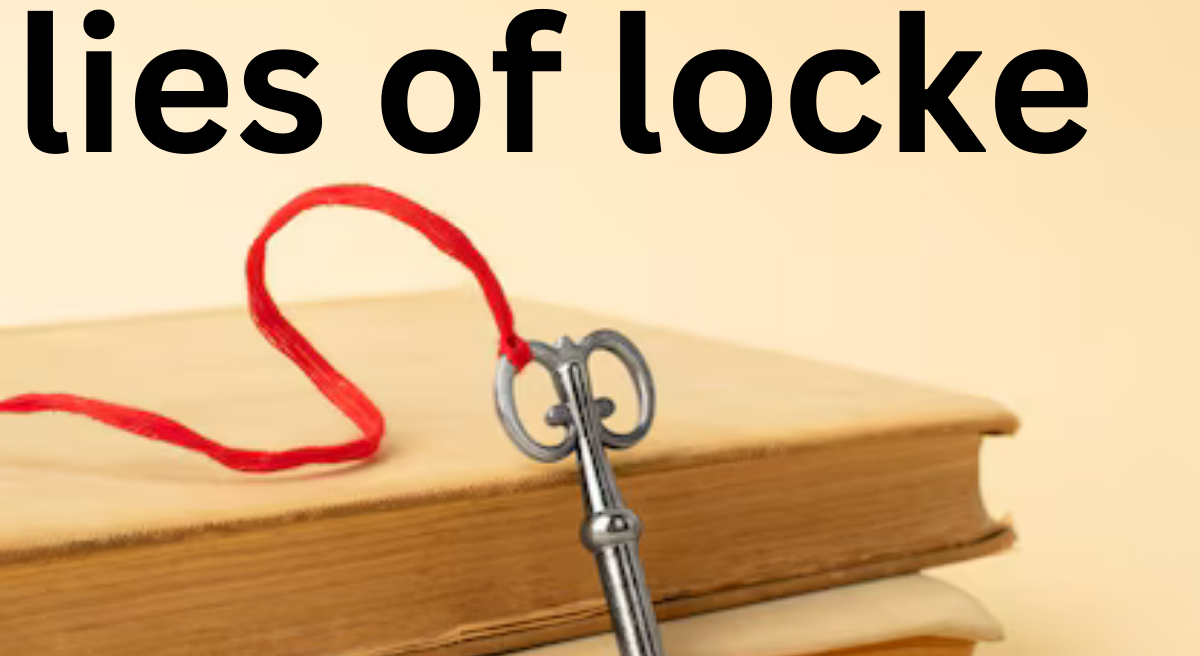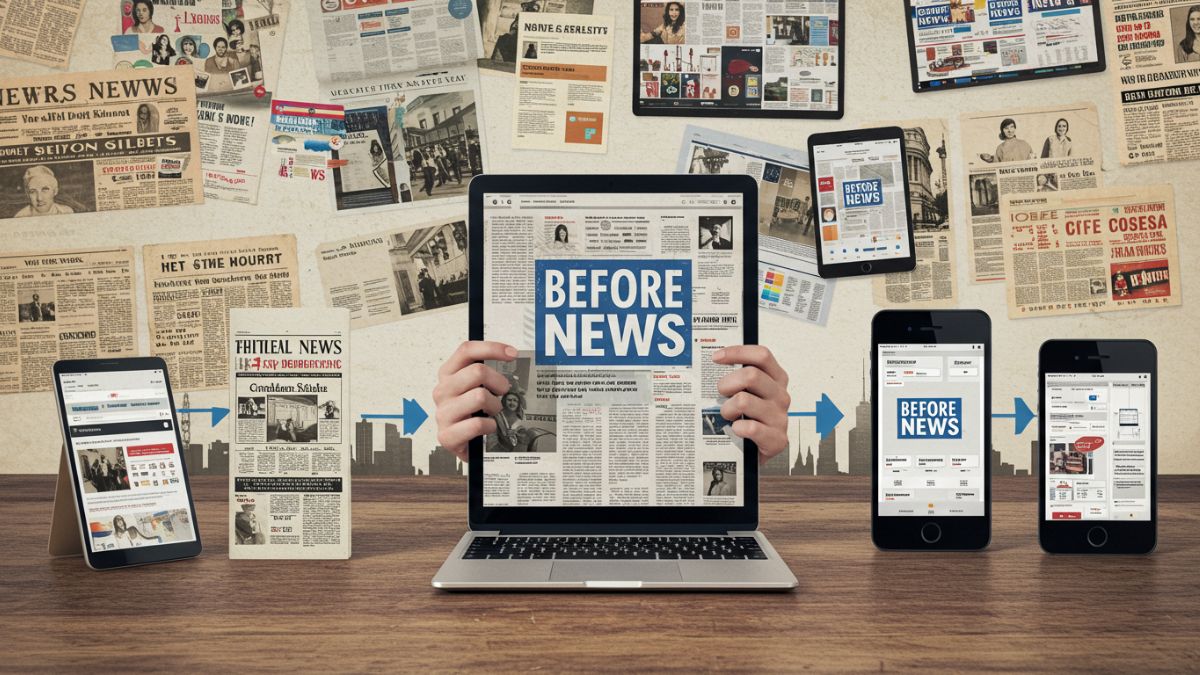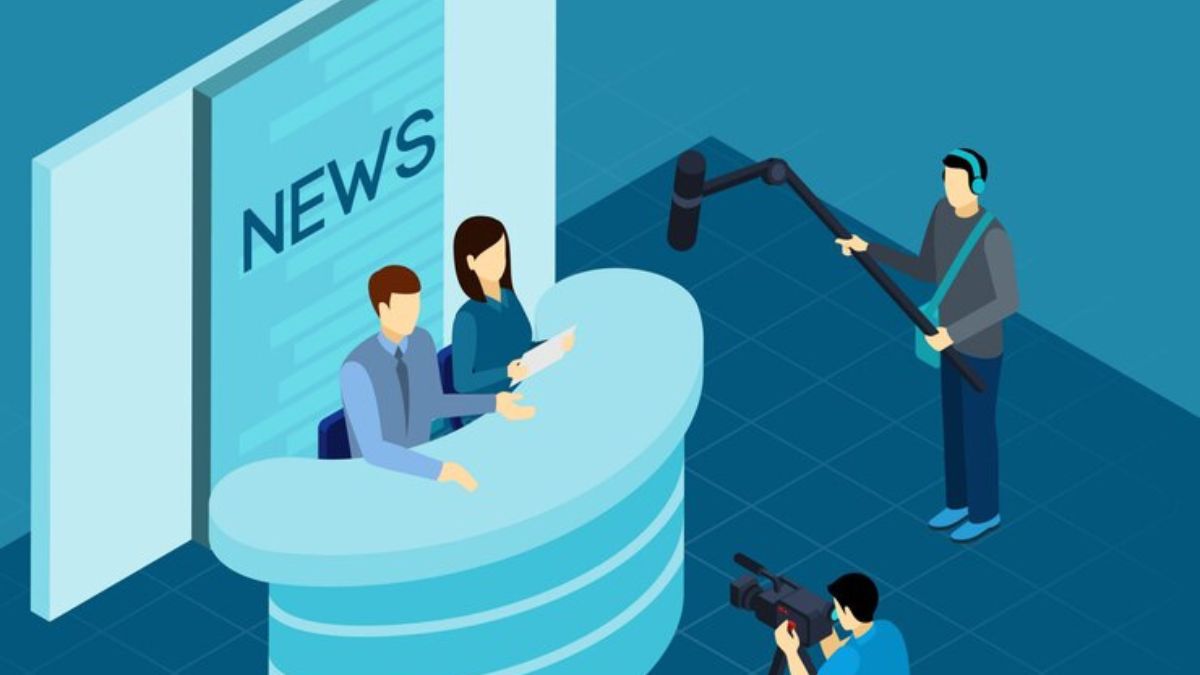NEWS
The Lies of Locke: Unpacking the Myths and Misconceptions

NEWS
Theweeklyspooncom general news: Your Go-To Source for Reliable News

When it comes to staying informed, the choice of your news source matters. News platforms play a critical role in shaping our understanding of the world—providing clarity amidst the chaos and ensuring that facts triumph over misinformation. Welcome to theweeklyspooncom general news, your trusted hub for general news that goes beyond the surface to deliver insightful, accurate, and engaging content.
Whether you’re a business professional staying ahead of market trends, a student seeking knowledge, or a concerned citizen eager to stay updated, TheWeeklySpoon.com is here to be your reliable guide in navigating the complexities of today’s world.
This blog explores why TheWeeklySpoon.com should be your go-to source for general news and highlights its features, benefits, and uniqueness in a crowded media landscape.
Why Reliable News Matters More Than Ever
The digital age has revolutionized how we consume information, giving rise to a plethora of news outlets, blogs, and social media platforms. With this abundance, however, comes a challenge—navigating the maze of misinformation, biased reporting, and clickbait that often flood these channels.
Reliable news contributes to:
- Well-informed decision-making in personal and professional contexts.
- Promoting media literacy by differentiating facts from opinions.
- Maintaining accountability in democratic systems by keeping leaders and organizations in check.
That’s why platforms like TheWeeklySpoon.com set themselves apart—they prioritize accuracy, clarity, and trustworthiness, ensuring that the information you receive enhances your understanding, not your confusion.
What Makes theweeklyspooncom general news Your Ideal News Companion?
Theweeklyspooncom general news blends professional journalism with a commitment to delivering information that truly matters. Unlike many competitors, it provides comprehensive coverage, tackling news from every angle with objectivity and depth. Here’s what sets this platform apart:
1. Wide-Ranging Coverage of Topics That Matter
From politics and global markets to culture, technology, and environmental shifts, Theweeklyspooncom general news curates stories that reflect the spectrum of today’s most pressing issues. Expect to find:
- Breaking News and Current Events
Stay up-to-date with real-time updates on key topics shaping the world around you.
- Insights on Emerging Technologies
Discover the latest trends in AI, renewable energy, and tech innovations driving change.
- Health and Wellness Features
From public health alerts to practical wellness tips, TheWeeklySpoon.com ensures you’re informed on how to care for yourself and your loved ones.
2. Commitment to Accurate & Objective Reporting
Trust is earned, and TheWeeklySpoon.com has built credibility through its unwavering dedication to responsible reporting. Each article adheres to rigorous fact-checking and journalism ethics, ensuring what you read is both precise and unbiased.
3. Digestible, Reader-Friendly Content
Long-form articles are thoughtfully structured with clear headings, making complex topics accessible to all readers. Whether you have five minutes or an hour, you’ll find content tailored to your time while keeping you fully informed.
4. Engaging Multimedia Integration
TheWeeklySpoon.com combines visually engaging infographics, data visualizations, and video content to complement textual reporting. This multimedia approach enhances both readability and retention, giving you a clear grasp of even the most intricate topics.
5. Fostering a Community of Knowledge Seekers
Beyond providing the news, TheWeeklySpoon.com creates opportunities for its audience to engage. Share your perspectives, ask questions, and join a thriving community of informed, curious readers. The comments sections and social channels foster civil dialogue and exchange of ideas—promoting deeper engagement with the issues that matter.
Experience News Like Never Before
Here are just a few ways regular readers describe their experience with TheWeeklySpoon.com:
- Clarity in Complexity: “I love how TheWeeklySpoon takes the most complicated news stories and breaks them down in ways that are easy to understand.”
- No Clickbait Guarantee: “I finally found a news site that cares more about facts than catching clicks!”
- All in One Place: “Whether it’s politics, health, or the coolest trends, this platform has it all.”
How TheWeeklySpoon.com Empowers Its Readers
Beyond standard reporting, TheWeeklySpoon.com equips its audience with tools for critical thinking and informed action. Consider these additional benefits for regular subscribers:
- Daily News Briefs Delivered to Your Inbox
Don’t have time to browse the web every morning? Sign up for daily curated briefs summarizing the most important updates so you can start your day informed.
- Deep-Dive Reports for Industry Professionals
TheWeeklySpoon.com regularly publishes investigative reports and analyses designed for professionals seeking in-depth understanding on issues ranging from financial markets to public health.
- Exclusive Access for Subscribers
By becoming a member, readers enjoy newsletters, exclusive interviews, and event invitations, further solidifying the connection between modern audiences and trustworthy journalism.
Join a Trusted Network of Global Readers
Every day, thousands turn to TheWeeklySpoon.com for reliable, engaging, and expertly crafted content. Will you be the next? Put aside unreliable sources that leave you doubting their authenticity and turn to a platform that places integrity at the heart of its reporting.
Take the Next Step
Staying informed isn’t just about consuming information, but about consuming the right information. Browse TheWeeklySpoon.com today, bookmark your favorite pieces, and sign up for exclusive updates that cater to your interests. Together, we shape an informed and inspired community.
Conclusion
At theweeklyspooncom general news, we believe that quality journalism is the foundation of an informed society. By choosing our platform, you’re not just accessing the news—you’re joining a movement that values truth, accuracy, and meaningful conversations. Don’t settle for less when it comes to staying informed. Visit TheWeeklySpoon.com today and be part of a global network that prioritizes trustworthy reporting and thoughtful perspectives. Together, we can build a brighter, more informed future.
FAQ’s
1. What kind of content does TheWeeklySpoon.com provide?
We offer a wide range of articles that cover current events, in-depth analyses, lifestyle topics, and thought-provoking editorials. Our goal is to deliver high-quality journalism that keeps you informed and engaged.
2. How can I subscribe to TheWeeklySpoon.com?
Subscribing is easy—just visit our website and sign up for a free account. You can also explore premium membership options to access exclusive content and benefits.
3. Is TheWeeklySpoon.com available globally?
Yes, our platform is accessible worldwide. Wherever you are, you can enjoy accurate and reliable reporting from TheWeeklySpoon.com.
4. How often is content updated on the website?
Our team works tirelessly to ensure fresh and timely content is added daily. Stay tuned for the latest updates across various categories.
NEWS
The Evolution of News Sharing: How ‘Before Its News’ Is Changing the Game

Today, in an era where speed and accessibility reign supreme, platforms like Before Its News are redefining how news is delivered and consumed.
This article dives deep into the evolution of news sharing, exploring how platforms like Before Its News are empowering citizen journalists, reshaping the news cycle, and transforming the media landscape.
The Shift to Citizen Journalism
From Gatekeepers to Community Contributors
For decades, news was controlled by major media outlets that acted as gatekeepers of information. While these institutions historically played a vital role in ensuring journalistic integrity, they also limited who could contribute to the public discourse. Today, platforms like Before Its News have disrupted that model by championing citizen journalism.
Unlike traditional outlets, Before Its Newss allows anyone, anywhere, to share breaking news, opinion pieces, and investigative reports. It empowers individuals to participate in the democratic process of news sharing without needing to pass through bureaucratic filters.
This democratized approach has created a global community of contributors, each with a unique perspective. It’s no longer just seasoned journalists shaping the conversation; everyday people with firsthand accounts are now at the forefront of storytelling. This paradigm shift has amplified diversity in reporting and given underrepresented voices a platform to be heard.
Real-Time Reporting Like Never Before
Speed is critical in today’s fast-moving world. Traditional news outlets often require extended lead times for fact-checking and editorial approvals. While important to ensure accuracy, this can delay the release of urgent information. With a decentralized platform like Before Its Newss, real-time updates are possible, enabling contributors to report critical developments as they unfold.
This agility makes Before Its Newss a crucial resource during crises, natural disasters, or breaking political events. Readers gain immediate access to developing stories, often before traditional outlets even begin their coverage.
How ‘Before Its News’ Changes the Game
Serving as an Alternative to Mainstream Media
Public trust in mainstream media has seen a marked decline in recent years. According to a recent Gallup poll, only 36% of Americans express confidence in traditional news outlets. Many feel these organizations are biased or fail to capture the full spectrum of perspectives. Platforms like Before Its Newss have stepped in to fill this gap by offering unfiltered news directly from grassroots levels.
The platform operates without corporate influence—a significant draw for readers seeking transparency. Without the pressure of advertisers or political affiliations, contributors are free to provide raw, honest accounts of events.
Enhancing Reader Engagement
Another game-changing aspect of Before Its Newss is its commitment to community engagement. Unlike traditional outlets that often present news in a one-directional format, the platform actively encourages dialogue between contributors and readers. Comments, discussions, and user-driven ratings allow readers to interact with stories actively, promote thoughtful conversation, and challenge viewpoints. This interactivity fosters a stronger connection between contributors and their audience.
Diverse Perspectives, Stronger Insights
One of Before Its Newss greatest advantages is the diversity it brings to reporting. Contributors from various geographical, cultural, and professional backgrounds enrich the platform’s content library. This diversity provides readers with well-rounded perspectives on global events, reducing the echo chamber effect prevalent in other media outlets.
Benefits of Platforms Like ‘Before Its News’
Increased Transparency
At its core, one of the primary benefits of platforms like Before Its Newss is their transparency. By allowing contributors to directly share their insights, these platforms remove intermediaries that may distort narratives. Readers have the opportunity to evaluate raw news and develop their interpretations based on facts.
Accessibility for All
Before Its Newss is free and easy to use, making it accessible to virtually anyone with an internet connection. Whether users are sharing an article from a mobile phone in a remote village or reporting on events within bustling metropolises, the platform fosters inclusion.
Fostering Critical Thinking
Unlike polished headlines shaped for mass appeal, stories on Before Its Newss often challenge conventional perspectives. Readers are prompted to think critically, validate sources, and compare narratives, cultivating a more informed and engaged audience.
Leveraging Technology for News Personalization
With technological integration, Before Its Newss uses algorithms to provide content tailored to user preferences. This personalization ensures readers have a custom news experience while still encouraging exploration of diverse topics.
Addressing the Challenges of Citizen Journalism
Tackling Misinformation
While citizen journalism brings many benefits, it also introduces challenges—chief among them being misinformation. Platforms like Before Its Newss recognize the importance of maintaining credibility and have taken steps to mitigate this issue. Clear guidelines for contributors, along with community-driven checks, ensure a high level of accountability.
The Need for Media Literacy
For readers to fully benefit from open platforms, media literacy becomes essential. Understanding how to verify sources, identify biases, and differentiate between opinion and fact is crucial in today’s media-rich ecosystem.
Before Its Newss actively promotes responsible information sharing among contributors and provides readers with the tools to become discerning news consumers.
The Future of News Sharing
The rise of platforms like Before Its News signals a turning point in the evolution of news sharing. With the democratization of content creation, empowered communities, and instantaneous updates, the concept of news has expanded beyond borders and traditional gatekeepers.
Looking forward, we can anticipate even more innovative developments. Integration with artificial intelligence (AI), for instance, could enhance fact-checking processes and improve the relevance of news suggestions for readers. Tools for multimedia storytelling, augmented reality (AR), and virtual reality (VR) will evolve to create immersive news experiences.
But perhaps the most exciting future possibility lies in the strengthened connection between people and stories. Platforms like Before Its Newss remind us that journalism, at its heart, is about people sharing their truths. And what could be more powerful than that?
Your Voice Matters—Join the ‘Before Its News’ Movement
Whether you’re a storyteller or a knowledge seeker, Before Its News offers an open platform where your voice matters. Explore breaking news, share your unique perspective, or participate in community dialogue—this is your space to engage with the world.
Become part of the movement today. Visit Before Its Newss and discover how you can contribute to shaping the next era of news.
Conclusion
Before Its News is redefining the landscape of journalism by fostering a community-driven platform that places power in the hands of its users. By supporting open discourse and encouraging diverse perspectives, it champions a future where everyone has the opportunity to share their truth and engage with meaningful stories. Join this revolutionary approach to news and make your voice heard—because shaping the narrative begins with you.
FAQs
What is Before Its News?
Before Its Newss is a community-driven news platform that empowers individuals to share stories, perspectives, and insights that matter to them. It’s designed to encourage open discourse and provide a space for diverse voices.
How can I contribute to Before Its Newss?
Becoming a contributor is simple. Visit our website, create an account, and start sharing your stories, opinions, or breaking news with a global audience.
Is there a cost to join or contribute?
No, Before Its Newss is completely free to use. We believe in open access to information and supporting a community that thrives on voluntary contributions.
What types of content are allowed on the platform?
We welcome a wide range of content, including breaking news, personal perspectives, research, or commentary on current events. However, we encourage contributors to ensure their content is honest, respectful, and meets our guidelines.
NEWS
Celebrating Legacies: How lima news obits Honor Local Heroes

Lima news obits often evoke a range of emotions. They serve as the final farewell, capturing a life’s essence in just a few written words. But there is more to these tributes than meets the eye. For communities like Lima, obituaries are not merely announcements; they are celebrations of achievement and legacy. The stories told within Lima News obits honor local heroes who’ve shaped lives and left an indelible mark on their neighborhoods. Join us as we explore how these heartfelt narratives pay tribute to those who deserve recognition for their remarkable contributions and sacrifices in our community.
The Importance of Obituaries
Obituaries hold a vital place in our society. They connect us to the past, allowing families and friends to remember cherished lives.
These tributes offer more than just dates and details; they encapsulate personal stories. Each obituary reflects individual journeys filled with triumphs, challenges, love, and laughter.
In moments of grief, they provide comfort by celebrating life rather than focusing solely on loss. Families often find solace in seeing their loved ones remembered through shared experiences.
Moreover, obituaries serve as historical records for communities. They document local events and milestones that contribute to collective memory.
By acknowledging those who have passed away, we create a sense of continuity within our neighborhoods. This practice fosters community cohesion while honoring the impact individuals have made during their lifetimes.
The Legacy of Local Heroes
Local heroes shape our communities in profound ways. They are the individuals who go above and beyond, often without seeking recognition. Their actions inspire others and create ripples of positive change.
These heroes come from all walks of life. From teachers nurturing young minds to firefighters risking their lives for public safety, each story adds depth to our community narrative.
Their legacies live on through the impact they have made. Families remember them not just for what they did but for how they made others feel valued and respected.
Celebrating these contributions keeps their spirit alive, reminding us that greatness can be found in everyday acts of kindness. The stories we tell about them become a part of our shared history, enriching future generations with lessons of courage and compassion.
Lima News and their Obituary Section
Lima News has carved a niche in its community by offering an obituary section that genuinely reflects the heart and soul of local residents. This platform goes beyond simple announcements; it serves as a homage to those who have shaped Lima.
Each obituary tells a story, capturing not only the milestones of a person’s life but also their unique contributions to society. Whether it’s highlighting achievements or cherished memories, Lima News ensures that every detail matters.
The obits connect families and friends, allowing them to pause and remember shared moments. They foster reflection on how these individuals impacted others’ lives.
Moreover, this section is meticulously curated, often featuring photographs that bring warmth and familiarity. It invites readers to celebrate legacies while remembering the personal connections they had with each honoree.
How Obituaries Honor Local Heroes
Obituaries serve as a powerful tribute to local heroes, capturing their essence and contributions. Each life story told through these narratives reflects the impact individuals have had on their communities.
When readers encounter an obituary, they get a glimpse into the values that shaped these heroes. Their accomplishments—big or small—come alive in words, inspiring others to follow similar paths of service and dedication.
These stories often highlight acts of bravery, kindness, or relentless commitment to bettering society. From educators who transformed lives to volunteers who uplifted those in need, obituaries shine a spotlight on remarkable legacies.
Moreover, sharing such stories fosters community connection. It encourages conversations about shared histories and personal influences while honoring those who made sacrifices for greater good. The ripple effect is profound; it keeps memories alive for generations to come.
Real-Life Examples of Honoring Legacies through Obituaries
Obituaries serve as poignant reminders of the impact individuals have on their communities. Take, for instance, the story of a local teacher who dedicated over three decades to shaping young minds. Her obituary highlighted not only her passion for education but also her unwavering commitment to mentoring students beyond the classroom.
Another example is that of a veteran whose life was celebrated through an obituary detailing his bravery and service. Friends and family shared anecdotes about how he inspired others with his dedication to duty and community service.
A beloved firefighter’s obituary captured tales of heroism during emergencies, showcasing both personal sacrifices and moments of camaraderie among colleagues. These narratives create lasting impressions on readers, reminding us that each person leaves behind unique footprints in our lives.
These stories exemplify how lima news obits can honor legacies while fostering connections within the community.
Conclusion:
Celebrating legacies through obituaries serves a vital purpose in our communities. They are more than just announcements of passing; they capture the essence of lives well-lived.
Local heroes, whether known for their service, achievements, or community contributions, deserve to be remembered with honor and respect. Lima News obits play an essential role in this process.
These pieces weave together stories that inspire others and highlight the impact individuals have made on their neighborhoods. By reflecting on these narratives, we’re reminded of shared values and collective memories.
Moreover, recognizing local heroes ensures that future generations understand the importance of community involvement. Each obituary is a tribute that transcends time.
FAQ’s
What are Lima News obits?
Lima News obits refer to the obituary section of the Lima News, a local publication that honors individuals who have passed away. These obituaries often highlight their achievements and contributions to the community.
Why are obituaries important?
Obituaries serve as a tribute to those we’ve lost. They celebrate lives lived and allow communities to remember local heroes for their impact, ensuring that legacies endure beyond death.
How does Lima News honor local heroes through obituaries?
The Lima News dedicates its obituary section to share stories of remarkable people from the area. This ensures that their contributions are acknowledged and remembered by loved ones and neighbors alike.
